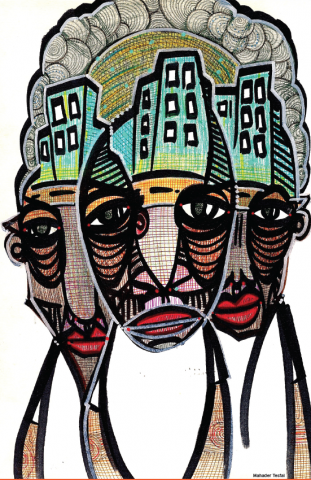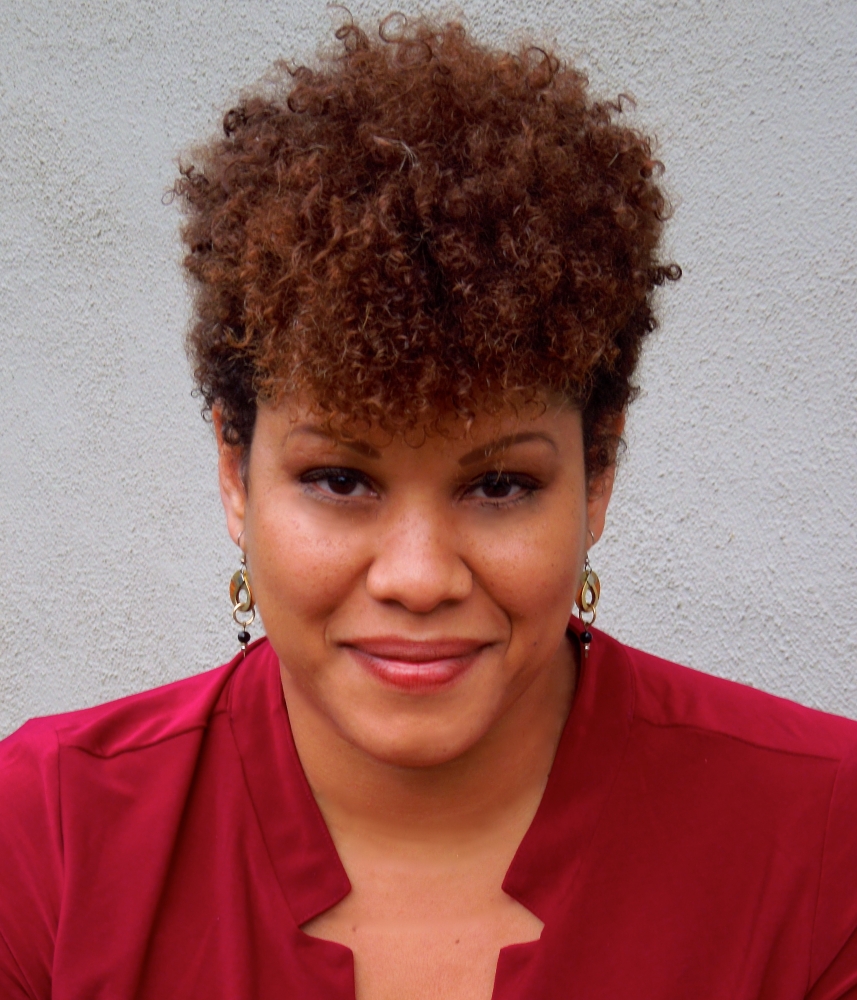
‘Illuminating and Liberating’

As a scholarly discipline, Black studies emerged out of protest.
In 1968, responding to student activism rooted in the Civil Rights Movement, UC Santa Barbara was among the first universities in the nation to establish a Black studies department. Students and scholars advocated for African Americans to be included in the academic record.
A half-century later, social justice, resistance and inclusion are still hallmarks of Black studies, but the field’s depth and diversity has expanded considerably.
“In the Black Radical Tradition,” a research symposium slated for April 18-20 at the MultiCultural Center, seeks to explore that complexity while also commemorating 50 years of Black studies on the campus.
“The expansion of Black studies includes thinking about race as well as gender, sexuality, class, freedom and different cultural formations — like music, art and literature — as places where various kinds of ideas about knowledge, experience and being get worked out, and not just ideas of protest,” said Stephanie Batiste, associate professor of Black studies and of English, who is organizing the symposium.
“The Black radical tradition is not solely about protest and that binary narrative of empowerment vs. disempowerment, whiteness vs. blackness,” Batiste said. “The story is much more complicated. The research we see at the symposium demonstrates that.”
According to Robinson, the Black radical tradition is “a philosophy, a consciousness and a practice of resistance and survival necessitated by the inexplicable and outrageous onslaught of oppressive practices and phobic behavior with which European traditions of colonialism and imperialism assaulted African people as far back as the Roman Empire.”
The term “Black Radical Tradition” was coined by Cedric Robinson in his 1983 book “Black Marxism: The Making of the Black Radical Tradition.” Robinson, who died in 2016, was a UCSB professor and director of the school’s Center for Black Studies Research (CBSR).
“The Black radical tradition argues for a rethinking of U.S. and Western history — indeed world history,” said Diane Fujino, a UCSB professor of Asian American Studies and current CBSR director. “It critiques Western thought and philosophies for their inability to comprehend ‘racial capitalism’ in the study of political economy, social relations and philosophy.
Robinson’s book traces African and European contributions to the development of Black radicalism, Fujino continued, “and illuminates the workings of ordinary Black folks as well as the famous, notably W.E.B. Du Bois, C.L.R. James and Richard Wright, in creating the Black radical tradition through study and struggle.”
The collaborative symposium serves as the annual gathering of Consortium for Black Studies in California (CBSC) fellows, and is a high point in 2017-18 UCSB Consortium programming in arts, scholarship and activism that bears out the Black Radical Tradition, headed by Batiste. It also culminates a yearlong reading series in the Black Radical Tradition.
Participants in the series read books by Robinson and the late Clyde Woods, also a former CBSR director, and “Futures of Black Radicalism,” edited by Gaye Johnson and Alex Lubin, which draws from Robinson’s book to reflect on current Black radical movements and thought. The three-day symposium will feature a panel focused solely on these books.
Other highlights include two presentations by Professor Celeste-Marie Bernier, of the University of Edinburgh’s Centre of African Studies, on abolitionist Frederick Douglass’ inclusion in the Black radical tradition, and a new archive of his family papers.
Douglass spent many years in Europe and Bernier’s presentation, Batiste noted, “extends our consideration of Black studies to abolitionist history, to think about a slave who emancipated himself, and credits his emancipation with self-taught literacy.”
She added that the panel titled “The Long 19th Century” offers an opportunity to consider the very long history in the U.S. of African American activism, and links that to a more global experience in the 20th century. In addition, the symposium incorporates a Department of Film and Media Studies screening of the 2013 documentary “Whoopi Goldberg Presents Moms Mabley” at 7 p.m. Thursday, April 19, in the campus’s Pollock Theater.
Batiste said she hopes people who attend the symposium will “begin to understand the centrality of Black experience in national and global histories, and that what it means to look at things from the Black radical perspective is neither divisive, nor niche, but in fact deeply illuminating and liberating.”



